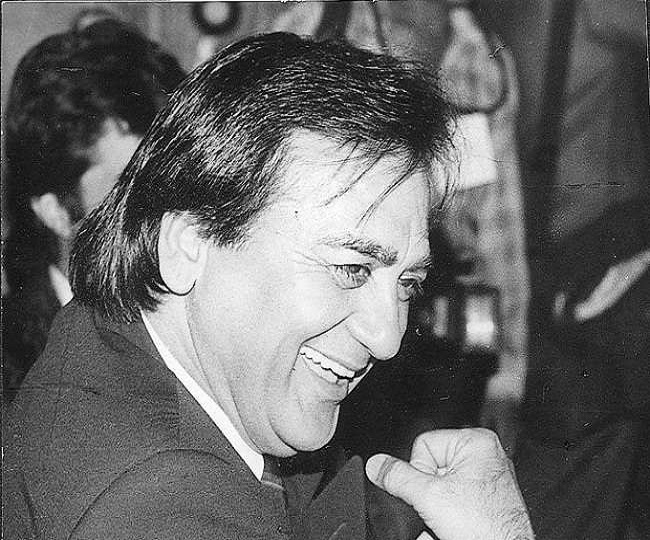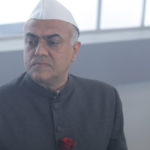Sunil Dutt Biography
Sunil Dutt, known for his iconic roles in Indian cinema, had a life filled with remarkable events and contributions that may not be widely known. Born as Balraj Dutt in Khurd Village in the Jhelum District of the British Indian Punjab Province, he faced early tragedies when his father passed away when he was just 5 years old. At the age of 18, he witnessed the tumultuous Hindu-Muslim riots that swept across the country, and during these troubled times, his family was saved by a Muslim friend of his father, Yakub. Subsequently, his family resettled in the peaceful village of Mandauli near the banks of the Yamuna River in Yamuna Nagar, Punjab, now part of Haryana. Afterward, he moved to Lucknow, where he spent considerable time in the bustling Aminabad Galli. Graduating from Jai Hind College in Bombay (now Mumbai), he worked at the city’s BEST Transport division. His career also led him to radio, where he became a Radio Jockey on the Hindi Service of Radio Ceylon, South Asia’s oldest radio station.
Table of Contents
While his film career began with “Railway Platform” in 1955, Sunil Dutt’s breakthrough came with the legendary film “Mother India” in 1957. Notably, during the filming of “Mother India,” he displayed extraordinary heroism by saving Nargis from a massive fire on set, ultimately winning her heart. In the late 1950s and 1960s, he became one of Hindi cinema’s major actors, starring in hits like “Sadhna,” “Mujhe Jeene Do,” “Waqt,” “Padosan,” and “Hamraaz.” A unique milestone in his career was directing and being the sole actor in the 1964 film “Yadein.”
Personal tragedies struck when he lost his wife, Nargis, to pancreatic cancer shortly before the release of “Rocky,” a film he produced to launch his son Sanjay Dutt’s acting career. In her memory, he established the Nargis Dutt Foundation for cancer patient care and sponsored the ‘India Project’ for children with facial deformities. Among his accolades, Sunil Dutt was appointed the ‘Sheriff of Mumbai’ by the Maharashtra Government in 1982. In a poignant demonstration of his advocacy for peace, he walked from Nagasaki to Hiroshima in Japan in 1988, promoting global demilitarization. His enduring contributions to Indian cinema earned him the Filmfare Lifetime Achievement Award in 1995.
Tragically, Sunil Dutt passed away due to a heart attack at his Mumbai residence on May 25, 2005. His daughter, Priya Dutt, continued his legacy by contesting and winning his parliamentary seat. In recognition of his significant contributions, he was posthumously honored with the Padma Shri by the Government of India. Sunil Dutt’s life was marked by both personal tragedies and extraordinary achievements, leaving an indelible mark on Indian cinema and philanthropy.

Bio | |
|---|---|
| Real Name | Balraj Dutt |
| Nickname | Not Known |
| Profession | Actor, Producer, Director, and Politician |
| Party | Indian National Congress (INC) |
| Indian National Congress | |
Political Journey | – Joined Indian National Congress in 1984. |
| – Elected to the Lok Sabha for the first time from Mumbai North West in 1984. | |
| – Retained Lok Sabha seats in 1989 and 1991 elections. | |
| – Did not contest Lok Sabha Elections in 1996 and 1998 due to a case against his son Sanjay Dutt. | |
| – Retained Lok Sabha seat in 1999, 2000, and 2004 elections. | |
| – Appointed Minister of Youth Affairs and Sports in the Manmohan Singh Government in 2004. | |
Physical Stats & More | |
| Height | 178 cm (5’ 10”) |
| Weight | 74 kg (163 lbs) |
| Eye Colour | Dark Brown |
| Hair Colour | Black |
| Personal Life | |
| Date of Birth | 6 June 1930 |
| Birthplace | Khurd Village, Jhelum, Punjab Province, British India |
| Date of Death | 25 May 2005 |
| Place of Death | At his residence in Bandra, Mumbai, India |
| Death Cause | Heart Attack |
| Age (as on 25 May 2005) | 74 Years |
| Zodiac sign/Sun sign | Gemini |
| Nationality | Indian |
| Hometown | Mumbai, Maharashtra, India |
| School | Not Known |
| College | Jai Hind College, Mumbai, India |
| Educational Qualification | B.A (Hons.) in History in 1954 from Jai Hind College Bombay (now Mumbai) |
| Debut | – Hindi Film: Railway Platform (1955) |
| – Punjabi Film: Man Jeete Jag Jeet (1973) | |
| – Director: Yaadein (1964) | |
| – Producer: Man Ka Meet (1968) | |
| Last Film | Munna Bhai M.B.B.S. (2003) |
Family | |
| Father | Diwan Raghunath Dutt |
| Mother | Kulwantidevi Dutt |
| Brother | Som Dutt (actor) |
| Sister | Raj Rani Bali |
| Religion | Hinduism |
| Address | 8-West, Apsara Co-Operative Housing Society Ltd., 61-B, Shrimati Nargis Dutt Road, Palli Hill, Bandra (West), Mumbai:400050 |
| Hobbies | Doing Philanthropy, Listening to Music |
Favourite Things | |
| Favourite Writer | Aghajani Kashmeri |
| Favourite Actress | Nargis |
| Favourite Food | Dum Chicken |
| Girls, Affairs, and More | |
| Marital Status | Married (at the time of death) |
| Affairs/Girlfriends | Nargis |
| Wife/Spouse | Nargis, Former Indian Actor |
| Marriage Date | 11 March 1958 |
| Children | Son- Sanjay Dutt |
| Daughters- Priya Dutt, Namrata Dutt | |
Money Factor | |
| Net Worth | 20 Crore INR (as in 2004) |
https://youtu.be/Ce18p0Zi_7U?si=7pe0Vy_33R8PHLu1
Some other Facts About Sunil Dutt
- Early Life and Name: Sunil Dutt, originally named Balraj Dutt, was born in Khurd Village in the Jhelum District of the British Indian Punjab Province.
- Early Tragedies: At the tender age of 5, Sunil Dutt faced a significant tragedy when his father passed away. Later, at 18, he witnessed the tumultuous Hindu-Muslim riots that swept across the country. During this turbulent time, his family was saved by a Muslim man named Yakub, a friend of his late father. Following these incidents, the family resettled in the serene village of Mandauli near the banks of the Yamuna River in Yamuna Nagar, Punjab, which is now part of Haryana.
- Journey to Stardom: Sunil Dutt moved to Lucknow, where he spent considerable time in the bustling Aminabad Galli. After completing his education at Jai Hind College in Bombay (now Mumbai), he worked at the city’s BEST Transport division. He also ventured into radio, becoming a Radio Jockey on the Hindi Service of Radio Ceylon, South Asia’s oldest radio station.
- Film Debut and Rise to Stardom: Sunil Dutt made his Hindi film debut in 1955 with “Railway Platform.” However, it was his iconic role alongside Nargis in the 1957 blockbuster “Mother India” that catapulted him to stardom. During the filming of “Mother India,” a massive fire broke out, and Sunil Dutt heroically saved Nargis from the flames, winning her heart.
- Filmography and Record-Breaking: In the late 1950s and 1960s, he established himself as a leading actor in Hindi cinema, delivering hits like “Sadhna” (1958), “Mujhe Jeene Do” (1963), “Waqt” (1965), “Padosan” (1967), and “Hamraaz” (1967). He achieved a remarkable feat by directing and starring in the 1964 film “Yadein,” where he was the sole actor.
- Personal Tragedy and Philanthropy: Sunil Dutt launched his son Sanjay Dutt’s acting career with the successful film “Rocky” in 1981. Tragically, just before the film’s release, his wife, Nargis, succumbed to pancreatic cancer. In her memory, Sunil Dutt founded the Nargis Dutt Foundation for cancer patient care. He also sponsored the ‘India Project,’ which aimed to treat children with facial deformities, similar to ‘Operation Smile.’
- Notable Achievements: Sunil Dutt received several honors, including being appointed as the ‘Sheriff of Mumbai’ by the Maharashtra Government in 1982. In 1988, he embarked on a symbolic walk from Nagasaki to Hiroshima in Japan to advocate for global demilitarization. In 1995, he received the Filmfare Lifetime Achievement Award for his substantial contributions to the Indian film industry.
- Legacy and Passing: Sunil Dutt passed away due to a heart attack at his Mumbai residence on May 25, 2005. His daughter, Priya Dutt, contested his parliamentary seat and emerged victorious. In recognition of his contributions, he was posthumously honored with the Padma Shri by the Government of India.
Sunil Dutt’s life was marked by both personal tragedies and remarkable achievements, making him a beloved figure in Indian cinema and philanthropy.
Read similar articles through this link


